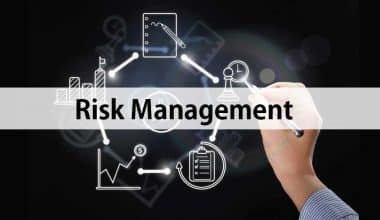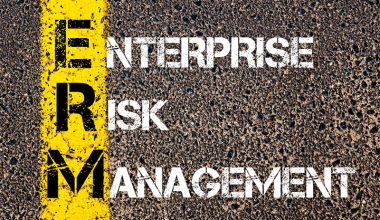Many people utilize personality tests to learn more about themselves and the things that drive them. Employers can learn a lot about a candidate’s work habits and compatibility with the corporate culture by getting to know their personalities. This article explores the best personality tests in the workplace which you need to work as a team with your colleagues. A list of some free personality tests is included in the article. Enjoy the ride!
History of the Personality Tests
Around 460 BC, Hippocrates proposed that everyone possessed a “persona” a personality made up of four different temperaments. He hypothesized that the predominant fluid in a person was what formed their sense of humor and, by extension, their unique character. Withelm Wundt is often regarded as the “Father of Psychology” and the “first person to clearly distinguish between the human body and a human personality theory” after making this breakthrough in 1879. Since the psychodynamic approach’s introduction in the late 1800s, our understanding of group personality has changed.
According to Sigmund Freud, the father of the psychodynamic school of thought, our personalities are far more nuanced and multifaceted than we’ve been led to believe. According to Carl Jung, our identities are shaped by our choices in the areas of perceiving, intuition, thinking, and feeling. Personality tests, evaluations, and kinds increased in the workplace in the 20th century. Thus, people were better able to develop their emotional intelligence, pursue fulfilling careers, increase their output and quality of life, and strengthen their relationships after they had a deeper appreciation of their own personalities.
The United States Army employed the Woolworth Personal Information Sheet, the first contemporary personality test, to determine whether enlistees were at risk for developing shell shock. The prevalence of personality tests, assessments, and theories has increased dramatically since the turn of the 20th century. People are also familiar with Myers-Briggs, 16 personalities, big five, and many IQ tests.
What Are Personality Tests?
Psychologists have employed personality tests to better understand character qualities in a range of contexts, including, if not particularly, the workplace. When used by trained specialists in the field of mental health, they can be helpful in making accurate diagnoses, in fostering personal growth and healthy interpersonal connections. Many internet personality tests are still popular. The following are some personality tests:
#1. HIGH5 Test
Finding out one’s innate strengths can be as simple as taking the free HIGH5 strengths exam. This is the StrengthsFinder that you may have heard of. It is founded on the tenets of both positive psychology and the study of individual personalities. The primary idea is that strengthening one’s shortcomings might help one avoid failure, but that focusing on one’s strengths is the key to success, pleasure, and fulfillment. Therefore, HIGH5 seeks to highlight individuals’ strengths rather than their weaknesses.
HIGH5 does not categorize its users in the same way as other tests do. Instead, it reveals your one-of-a-kind strengths sequence, of which there are only 1,870,000 in the entire world. Professionals in 95% of the Fortune 500 use the evaluation because of its action orientation and focus on development. It is widely used in the fields of self-improvement, group dynamics, coaching, and executive education. After answering 100 questions in 20 minutes, you’ll receive a free HIGH5 report with your top 5 strengths.
#2. Eysenck Personality Questionnaire
The Eysenck Personality Questionnaire was later developed by Hans Eysenck and Sybil Eysenck, not to be confused with the Eysenck Personality Inventory, to assess personality across three aspects of temperament: extroversion versus introversion, neuroticism versus stability, and psychoticism versus socialization. The entire questionnaire has 100 yes/no questions; the short-scale version has 48. Although paper copies of this survey and information about it are hard to come by because it is not a widely used personality test.
#3. Minnesota Multiphasic Personality Inventory
The Minnesota Multiphase Personality Inventory (MMPI) was developed by Hathaway and McKinley in 1939 and is used to evaluate ten different dimensions of adult personality and psychopathology: hysteria, depression, paranoia, hypochondriasis, psychopathic deviate, masculinity/femininity, psychastenia, schizophrenia, hypomania, and social introversion.
The inventory is widely used for the diagnosis and support of treatment programs for mental disorders, and it has a high clinical reference. However, it is also useful in occupational settings for screening candidates, particularly in high-risk occupations like law enforcement, aviation, and the armed forces, where mental stability is paramount.
#4. The Birkman Method
The Birkman approach, developed by Roger Birkman, is a web-based inventory that evaluates one’s character, social awareness, and career passions. The purpose of the evaluation is to help the participant gain an understanding of the factors that motivate their actions in both their professional and personal lives.
There are a total of 32 scales spread over the questionnaire, 10 of which describe career preferences, 11 successful behaviors, and 11 interpersonal behaviors and environmental expectations. This kind of personality testing has wide applicability and is commonly used in business settings for purposes such as training new leaders, forming cohesive teams, identifying promising new employees, and improving the quality of negotiations.
The test has 298 questions: 250 true/false and 48 multiple-choice. It takes about 30 minutes to do this online personality test.
Best Personality Tests in the Workplace
Taking a personality test throughout the hiring process is becoming the norm. Numerous personality tests are used by companies to learn more about their personnel. Also, prospective employees’ chances of success might be estimated using pre-employment personality tests as well. The following are some best personality tests in the workplace:
#1. Myers-Briggs Type Indicator
The Myers-Briggs Type Indicator, or MBTI, is a popular personality test used by many businesses when interviewing potential new employees. A candidate’s answers to its questions are used to categorize them into one of four major groups: extraversion vs. introversion, judging vs. perceiving, intuition vs. sensing, and thinking vs. emotion. Participants are classified into one of 16 distinct personality types based on the results of these clusterings. Also, there are a total of 93 questions, making this a lengthy test.
#2. SHL Occupational Personality Questionnaire
A person’s personality traits and conduct may have an impact on how well they do at work, according to the SHL Occupational Personality Questionnaire, often known as the OPQ32. There are 104 questions that assess 32 traits that have been found to influence an individual’s performance at work. These traits can be broken down into three broad categories: affective states, cognitive dispositions, and interpersonal connections.
For each question, participants chose the statement that best describes them and the opposite statement that least characterizes them. Each participant receives a unique report detailing their strengths and areas for improvement, as well as a graphical summary that may be used to evaluate their performance relative to that of other applicants.
#3. Caliper Profile
The Caliper profile is a tool for evaluating employees and applicants that assesses a person’s potential for job performance and identifies the candidate most likely to succeed in the position based on intrinsic drive. The information gleaned from these profiles is useful in a wide variety of contexts, including but not limited to recruitment, training, team building, talent management, succession planning, employee engagement, and output enhancement. The Caliper Profile is a 180-question multiple-choice test that might take up to 2 hours to finish.
#4. 16 Personality Factor Questionnaire
The 16 Factor Personality Questionnaire (16PF) was initially developed by psychologists Raymond B. Cattell, Maurice Tatsuoka, and Herbert Eber and published in 1949. It has several uses, from evaluating candidates for jobs to tracking staff performance. Dominance, rule consciousness, sensitivity, emotional stability, perfectionism, self-reliance, and adaptability are only some of the personality traits it assesses.
#5. DISC personality Test
This test determines one of 12 possible personality types based on the factors of Dominance, Influence, Steadiness, and Compliance (DISC), and it does so by having the test-taker score how much they identify with each of the 28 items.
#6. HEXACO Personality Inventory-Revised
Several personality traits and theoretical interpretations from prior research were incorporated into the HEXACO model, which was developed in the year 2000. The model assesses six key characteristics of a person’s character: honesty/humility, emotionality/openness to emotion, extraversion, agreeableness, conscientiousness, and openness to experience.
A comprehensive inventory evaluation consists of 200 questions, whereas a shorter examination consists of 100 questions. Also, if you’re in a pinch for time, you can always turn to the HEXACO 60. The HEXACO website has accessibility and pricing details.
#7. Revised NEO Personality Inventory
The Revised NEO Personality Inventory was completed in 2005 and is the most recent version available. Each of the five factors; neuroticism, openness to experience, agreeableness, conscientiousness, and extraversion is measured and tested, with each factor further subdivided into subcategories.
The neuroticism trait, for instance, makes a person more susceptible to stress, anxiety, sadness, impulsivity, and self-consciousness. Since many of its measures are useful in the workplace, it has grown more popular for pre-employment screening.
#8. Eysenck Personality Inventory
Extroversion/introversion and neuroticism/stability are two of the factors used to gauge a person’s character in the Eysenck Personality Inventory. There are three scores calculated from this questionnaire: an extroversion (‘E’) score, a neuroticism (‘N’) score, and a lying (‘lie’) score to determine how much of the time you spent filling out the questionnaire you spent trying to appear more socially desirable than you actually are.
It will take you between 20 and 35 minutes to finish answering all 100 of the survey’s yes/no questions. A shorter questionnaire of 57 yes/no questions can be completed in as little as 10-25 minutes. The grading mechanism and whether the survey is supplied online affect its cost.
Why Are Personality Tests Useful in the Workplace
Knowing your personality can help you choose a career. This self-awareness may also help you when applying for jobs because it will show employers that you are a strong candidate. A personality test might be useful if you want to:
- Learn about your personal strengths and passions: Understanding your personality type will help you shine a light on your best qualities and identify areas where you might use improvement.
- Locate Promising Professions: A personality test can be beneficial when deciding on a course of study, majoring in college, or making a job change.
- Give prospective employers a good impression of you: During the interview process, questions about personality tests could come up. Knowing your personality type before an interview helps you answer honestly.
- Determine the most desirable social and working conditions: Although you may have a general sense of whether or not you lean more toward introversion or extroversion, a more in-depth understanding of how your personality is categorized might shed light on the kinds of circumstances and relationships in which you are most likely to flourish.
- Recognize the difficulties you may face in a specific job or work setting: Knowing what to expect in terms of more challenging conditions might help you either get ready for them or avoid them altogether. If you know what will go in your way, you can work on yourself better.
Free Personality Tests
The following are some free personality tests you can opt for:
#1. Personality Perfect
Personality Perfect, like the popular 16 Personalities test, uses four broad categories to determine your personality type: extraversion vs. introversion, sensing vs. intuition, thinking vs. feeling, and judging vs. perceiving. The test gives you an overall picture of your social interactions, behavior, and, most surprisingly, how you’re likely perceived by others.
#2. Human Metrics
The Human Metrics app not only tells you your four-letter personality type (again, based on the theories of Jung and Myers-Briggs), but it also tells you which renowned people have your type. You may find out which job fields are most suited to your character traits by taking this quiz. If you’re having problems deciding on a professional path, or if you’re having second thoughts about the one you’ve already picked, this quiz may help. It is one of the best free personality tests you can opt for.
#3. TestColor
There are only two questions on Test Color, which have been validated by a group of clinical psychologists, psychoanalysts, and mathematicians: “Click on the colors you like most,” and “Click on the colors you like least.” The results of the Test of Color reveal information about the taker’s emotional intelligence, creativity, imagination, social skills, work style, and management preferences.
#4. Crystal
Crystal offers a free DISC assessment that will help you learn more about how your personality functions in the workplace, the kind of people with whom you get along, and those with whom you might have conflicts. Understanding how your own personality biases you towards particular coworkers (e.g., your personality can see another coworker’s words as insulting, when the coworker just believes in being direct) is something that can be learned from the exam and used to improve your working relationships with others. It is sure one of the best free personality tests you can opt for.
#5. 123Test
There are no valid excuses not to take the DISC personality test that 123Test provides and which can be completed in only five minutes. Find out how well your social behaviors are predicted by your DISC profile with a score.
The test provides useful insight into the reasons you get along better with some colleagues and have more conflicts with others. Improve your professional connections by learning how you react to other people’s behaviors (e.g., “You’re sensitive to her blunt nature, even though she believes she’s just being straightforward”).
Are Personality Tests 100% Accurate?
Researchers and employers utilize personality tests, but regular people use them for fun. The good news is that, when utilized properly, evidence-based personality tests are quite reliable.
What Is the Most Commonly Used Personality Test Today?
- Myers-Briggs Type Indicator.
- Caliper Profile.
- 16 Personality Factor Questionnaire.
- SHL Occupational Personality Questionnaire.
- HEXACO Personality Inventory-Revised.
- Eysenck Personality Inventory.
- DISC personality test.
How Can I Know My Personality?
Possessing self-awareness involves not only being watchful and introspective but also being secure in one’s own skin. The second step toward self-discovery is to take a personality test administered by a school or career counselor or a mental health practitioner who specializes in such evaluations.
Final Thoughts
In situations when people don’t know each other very well, these tests might be a fantastic way to break the ice and start talking. They are also useful for making friends and finding common ground at work. If you take the time to get to know your coworkers, you may find out how they like to be communicated with and how they will respond to constructive criticism. However, this can make your team more effective in projects and meetings by preventing future avoidable misunderstandings.
Related Articles
- Personality Branding: What Is It, Examples & Strategies
- DISC ASSESSMENT: Definition, Types and Test
- QUESTIONNAIRE SURVEY: Top Ideas, How to Make It, Examples & Instruments
- What Are Tips On Becoming A Brand Ambassador
- SURVEY QUESTIONNAIRE FOR EMPLOYEE: Top 10+ Questionnaire for Employees, Types & Maker
- PRE-EMPLOYMENT ASSESSMENT: What It Is, Types & How to Pass One






